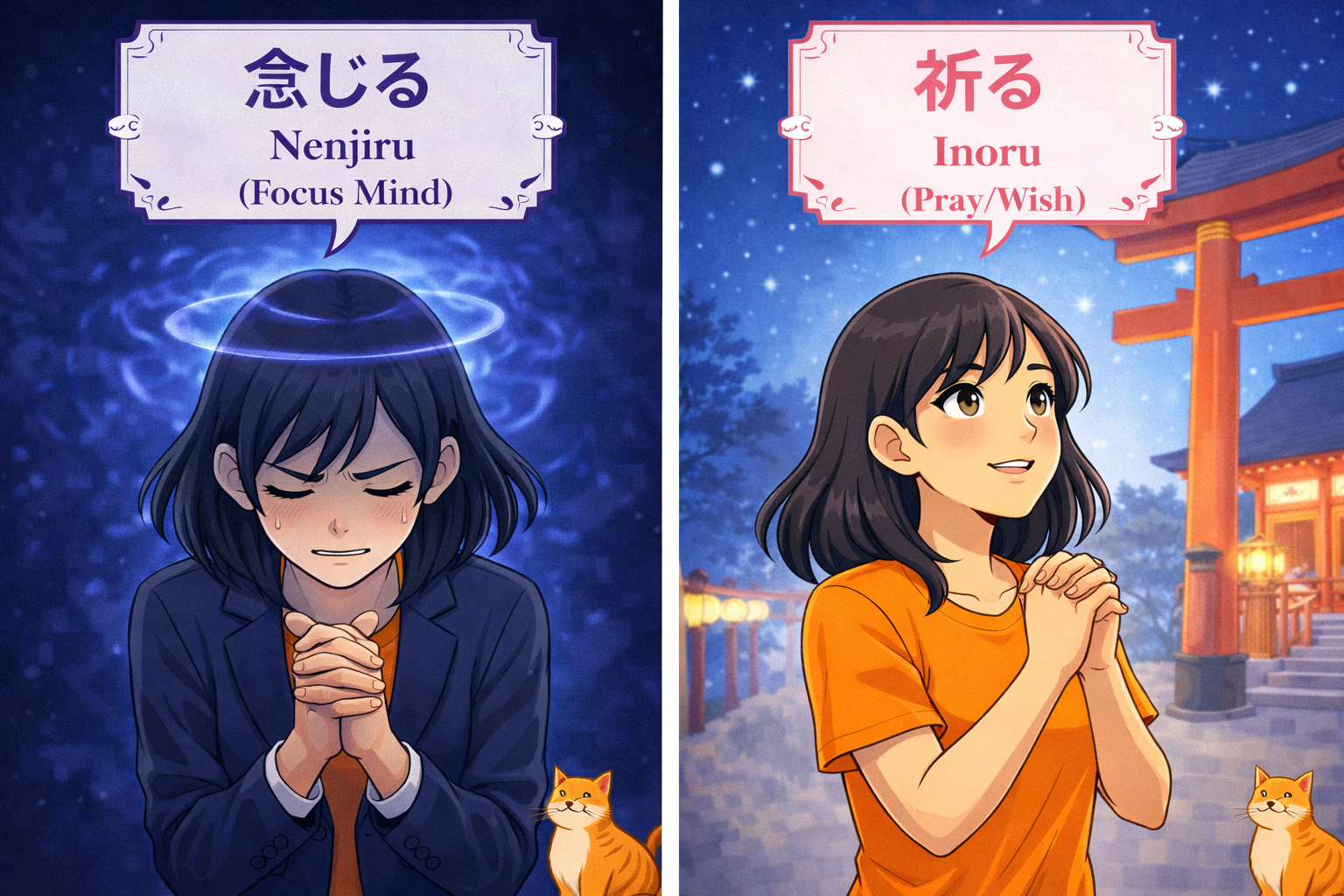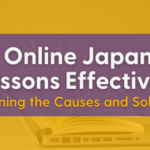 (Joy using mental power [Nenjiru] vs. Joy praying to God [Inoru])
(Joy using mental power [Nenjiru] vs. Joy praying to God [Inoru])“I pray for peace.” (Heiwa o inoru)
“I pray/chant silently.” (Kokoro de nenjiru)
While both involve prayer, 祈る (Inoru) is asking for a result, while 念じる (Nenjiru) is using mental focus or intensity. Let’s explore this spiritual difference with Joy and Ken!
🗣 Conversation Scene
Joy is worried about tomorrow’s exam results.
合格(ごうかく)するように、必死(ひっし)に 念(ねん)じています!
(Tomorrow is the exam result announcement. I am desperately “using my mind power / focusing” to pass!)
そこは神様(かみさま)に 祈(いの)りましょう。
(Joy, that sounds scary! haha. In that case, let’s “pray” to God.)
💡 Explanation
Is it “Hope” or “Concentration”?
Point 1: Inoru (祈る) = Pray / Wish
Focus: Asking for a blessing
This is the standard word. You ask God, Buddha, stars, or the universe for a specific outcome. It implies “hope.”
- 平和(へいわ)を 祈る。
(Pray for peace.) - ご活躍(かつやく)を お祈りします。
(I wish/pray for your success. [Standard business closing])
Point 2: Nenjiru (念じる) = Chant / Focus Mind
Focus: Internal mental intensity
“Nen” (念) means “thought” or “mind.” This implies focusing your mind intensely on something, reciting a mantra, or willing something to happen. It feels heavy and internal.
- 仏(ほとけ)を 念じる。
(Keep Buddha in mind / Meditate on Buddha.) - 「動け!」と 念じる。
(Focus one’s mind, thinking “Move!” [Like psychokinesis])
📊 Comparison Table
🚧 Joy’s Mistake
(Wishing a friend “Happy Birthday”)
❌ Wrong: あなたの 幸(しあわ)せを 念(ねん)じています。
(Scary! This sounds like you are casting a spell or obsessively thinking about them in a dark room.)
✅ Right: あなたの 幸せを 祈(いの)っています。
(I pray/wish for your happiness. This is light, kind, and normal.)
🔥 Practice Quiz
Tap to check the answer!




